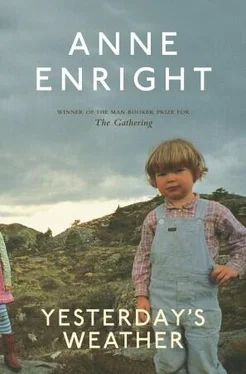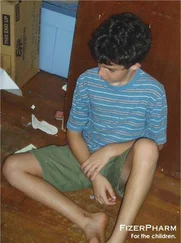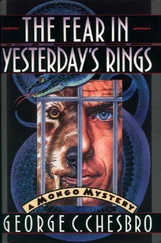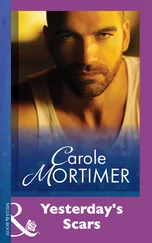She was 11th out of the coach, which was nice. The car parked in front had 779 on its number plate. It was going to be a big night.
She played Patience when she was agitated and on Monday afternoons, even if she was not. She wouldn’t touch the Tarot. The cards held the memory of wet days by the sea, with sand trapped in the cracks of the table that made them hiss and slide as she laid them down. Their holiday house was an old double-decker bus washed up on the edge of the beach with a concrete block where the wheels should have been and a gas stove waiting to blow up by the driver’s seat. They were numberless days with clouds drifting one into the other and a million waves dying on the beach. The children hid in the sea all day or played in the ferns and Jim came up from Dublin for the weekend.
‘This is being happy,’ she thought, scattering the contents of the night bucket over the scutch grass or trekking to the shop. She started counting the waves in order to get to sleep.
She knew before she realised it. She knew without visitation, without a slant of light cutting into the sea. There was no awakening, no manifestation, no pause in the angle of the stairs. There may have been a smile as she took the clothes pegs out of her mouth and the wind blew the washing towards her, but it was forgotten before it happened. She just played Patience all day on the fold-down table in a derelict bus and watched the cards making sense.
By the age of 55 she had left the cards behind. She found them obvious and untrustworthy — they tried to tell you too much and in the wrong way. The Jack of Spades sat on the Queen of Hearts, the clubs hammered away in a row. Work, love, money, pain; clubs, hearts, diamonds, spades, all making promises too big to keep. The way numbers spoke to her was much more bewildering and ordinary. Even the bingo didn’t excite or let her down, it soothed her. It let her know in advance.
5 roses: the same as
5 handshakes at a railway station: the same as
5 women turning to look when a bottle of milk smashes in the shop: the same as
5 children: the same as
5 odd socks in the basket
5 tomatoes on the window-sill
5 times she goes to the toilet before she can get to sleep. and all different from
4 roses, 4 shakes of the hand, 4 women turning, 4 children, 4 odd socks, 4 tomatoes in the sun, 4 times she goes to the toilet and lies awake thinking about the 5th.
The numbers rushed by her in strings and verification came before the end of any given day. They had a party all around her, talking, splitting, reproducing, sitting by themselves in a corner of the room. She smoked them, she hung them out on the line to dry, they chattered to her out from the TV. They drummed on the table-top and laughed in their intimate, syncopated way. They were music.
She told no one and did the cards for people if they asked. It was very accurate if she was loose enough on the day, but her husband didn’t like it. He didn’t like the bingo either and who could blame him.
‘When’s it going to stop?’ he would say, or ‘the money’s fine, I don’t mind the money.’
‘With a bit of luck,’ she said, ‘my luck will run out.’
On Wednesday nights she went with Mrs Power to the local pub, because there was no bingo. They sat in the upstairs lounge where the regulars went, away from the people who were too young to be there at all. Mr Finn took the corner stool, Mr Byrne was centre forward. In the right-hand corner Mr Slevin sat and gave his commentary on the football match that was being played out in his head. The women sat in their places around the walls. No one let on to be drunk. Pat the barman knew their orders and which team were going to get to the final. At the end of the bar, Pauline made a quiet disgrace of herself, out on her own and chatty.
‘His days are numbered …’ said a voice, and Mrs Hanratty listened to her blood quicken. ‘That fella’s days are numbered .’ There was a middle-aged man standing to order like a returned Yank in a shabby suit with a fat wallet. He was drunk and proud of it.
‘I’ve seen his kind before,’ he counted out the change in his pocket carefully in 10s and 2s and 5s, and the barman scooped all the coins into one mess and scattered them into the till. Mrs Hanratty took more than her usual sip of vodka and orange.
‘None of us, of course,’ he commented, though the barman had moved to the other end of the counter, ‘are exempt.’
It was 2 weeks before he made his way over to their table, parked his drink and would not sit until he was asked. ‘I’ve been all over,’ he told them. ‘You name it, I’ve done it. All over,’ and he started to sing something about Alaska. It had to be a lie.
‘Canada,’ he started. ‘There’s a town in the Rockies called Hope. Just like that. And a more miserable stretch of hamburger joints and shacks you’ve never seen. Lift your eyes 30 degrees and you have the dawn coming over the mountains and air so thin it makes you feel the world is full of … well what? I was going to say “lovely ladies” but look at the two I have at my side.’ She could feel Mrs Power’s desire to leave as big and physical as a horse standing beside her on the carpet.
He rubbed his thigh with his hand, and, as if reminded slapped the tables with 3 extended fingers. There was no 4th. ‘Look at that,’ he said, and Mrs Power gave a small whinny. ‘There should be a story there about how I lost it, but do you know something? It was the simplest thing in the County Meath where I was as a boy. The simplest thing. A dirty cut and it swelled so bad I was lucky I kept the hand. Isn’t that a good one? I worked a combine harvester on the great plains in Iowa and you wouldn’t believe the fights I got into as a young fella as far away as … Singapore — believe that or not. But a dirty cut in the County Meath.’ And he wrapped the 3 fingers around his glass and toasted them silently. That night, for the first time in her life, Maeve Hanratty lost count of the vodkas she drank.
She wanted him. It was as simple as that. A woman of 55, a woman with 5 children and 1 husband, who had had sexual intercourse 1,332 times in her life and was in possession of 14 coal-scuttles, wanted the 3-fingered man, because he had 3 fingers and not 4.
It was a commonplace sickness and one she did not indulge. Her daughter came in crying from the dance-hall, her husband (and not, in fact, her father) spent the bingo money on the horses. The house was full of torn betting slips and the stubs of old lipstick. Mrs Hanratty went to bingo and won and won and won.
Although she had done nothing, she said to him silently, ‘Well it’s your move now, I’m through with all that,’ and for 3 weeks in a row he sat at the end of the bar and talked to Pauline, who laughed too much. ‘If that’s what he wants, he can have it,’ said Mrs Hanratty, who believed in dignity, as well as numbers.
But even the numbers were letting her down. Her daily walk to the shops became a confusion of damaged registration plates, the digits swung sideways or strokes were lopped off. 6 became 0, 7 turned into 1. She added up what was left, 555, 666, 616, 707, 906, 888, the numbers for parting, for grief, for the beginning of grief, forgetting, for accidents and for the hate that comes from money.
On the next Wednesday night he was wide open and roaring. He talked about his luck, that had abandoned him one day in Ottawa when he promised everything to a widow in the timber trade. The whole bar listened and Mrs Hanratty felt their knowledge of her as keen as a son on drugs or the front of the house in a state. He went to the box of plastic plants and ransacked it for violets which were presented to her with a mock bow. How many were there? 3 perhaps, or 4 — but the bunch loosened out before her and all Mrs Hanratty could see were the purple plastic shapes and his smile.
Читать дальше












